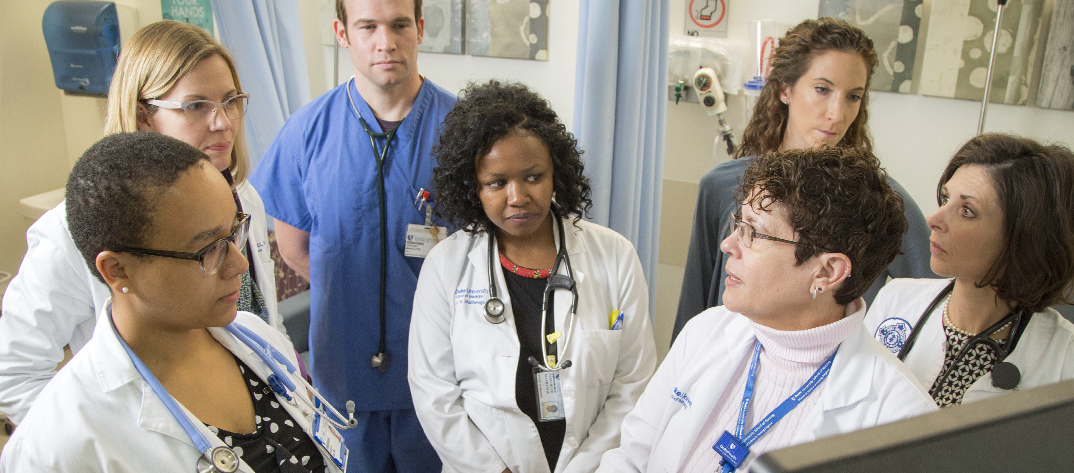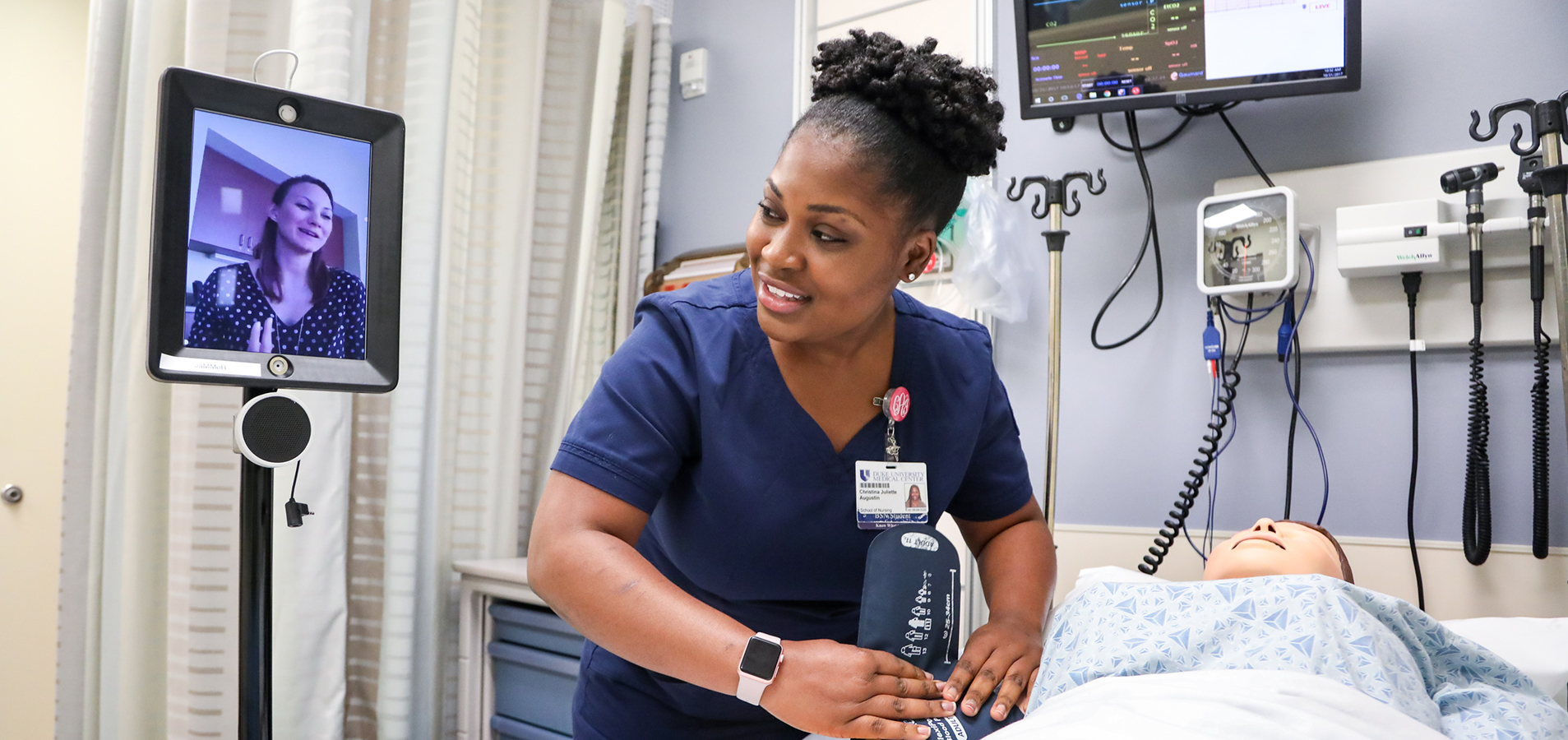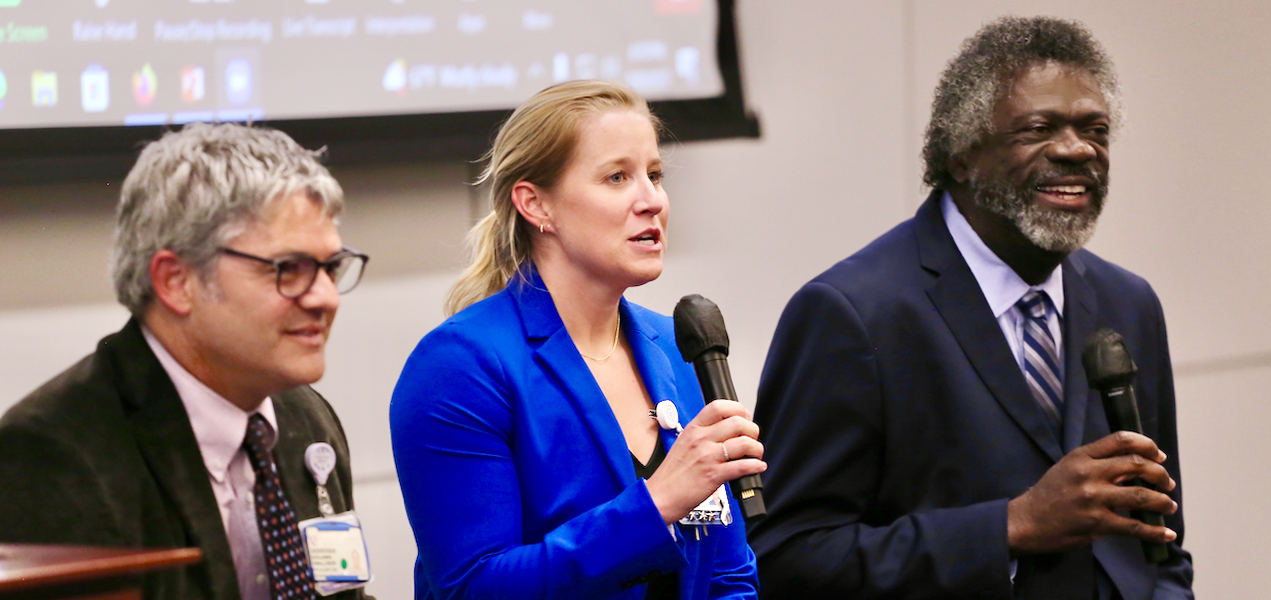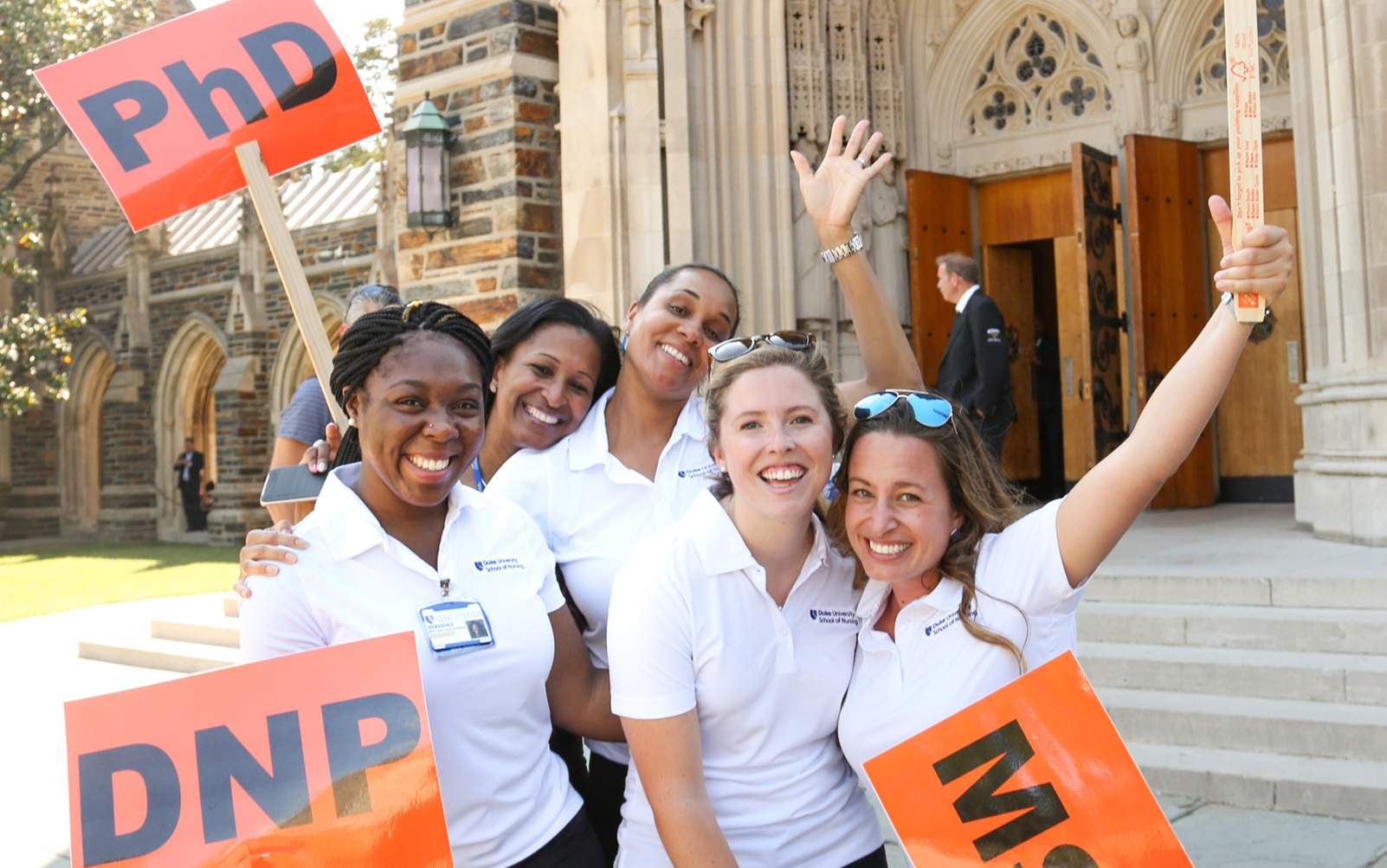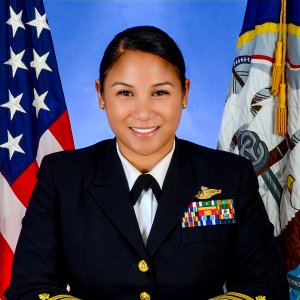Lead with confidence and empathy as an MSN in Nursing and Healthcare graduate.
Transform your career and inspire others with Duke University School of Nursing’s MSN in Nursing and Healthcare Leadership. Our program prepares you for a wide range of positions, from traditional health care management to emerging roles in quality, safety and provider practice management. You’ll develop the real-world skills to drive positive change, influence workplace culture, and enhance patient outcomes and staff well-being.
Our Nursing and Healthcare Leadership is your stepping stone to becoming an influential nurse leader. The program provides a solid foundation in quality management, health care economics, cultural intelligence and innovation through data management and evidence-based practice. This knowledge is crucial for addressing today’s nursing and health care challenges, with an emphasis on improving health equity and outcomes.
Our online program fosters your leadership development through a supportive community, where you’ll learn from faculty with extensive and diverse nursing and health care leadership expertise. You’ll be encouraged to network and establish relationships to identify clinical experiences and mentors, while meeting your academic and personal goals with individualized clinical or synthesis experiences tailored to your experience, vision, hopes and objectives.
Our Nursing and Healthcare Leadership program is currently not accepting applications.
Nursing and Healthcare Leadership Post-Graduate Certificate
For students who already have a master’s from an ACEN- or CCNE-accredited nursing school or in another approved discipline, we also offer a Nursing and Healthcare Leadership Post-Graduate Certificate. This program allows you to build on your expertise with specialized skills and knowledge, advancing your career potential.
Nursing and Healthcare Leadership Highlights
Our nursing leadership MSN program is ranked as the No. 1 administrative nursing program in the country by U.S. News & World Report. When you enroll in our program, you will experience all the advantages and world-class features that distinguish us from other nurse leadership programs:
Distance-based education:
Duke University’s School of Nursing was a pioneer in offering online MSN programs to students across the world. In addition to engaging online courses, we provide a supportive, resource-rich environment to ensure your success in the classroom and beyond.
Commitment to diversity:
Our nursing leadership MSN program is intentionally designed to foster a rich learning environment composed of students with diverse leadership backgrounds. This diversity, including administrative nursing professionals from across the country who bring their unique life experiences, enriches the program for every student.
Learn to lead:
Our nursing leadership curriculum provides a strong foundation in essential nurse leadership topics, such as organizational theory, financial management and leadership traits. The program culminates in an individualized synthesis experience tailored to your interests, with support from a master’s-prepared nursing leader to help you meet your academic and long-term goals.
What Can You Do With an MSN in Nursing and Healthcare Leadership?
In the post-pandemic era, the demand for nursing leadership has significantly increased. The presence of strong nurse leaders is crucial as they play a pivotal role in driving positive change within health care organizations. Their influence extends to shaping workplace culture, fostering an environment of collaboration and support, and ultimately leading to improved patient outcomes and enhanced staff well-being.
Strong nurse leaders are essential in guiding teams through the challenges and changes brought about by the pandemic, ensuring high-quality care and support for both patients and health care professionals. With our MSN in Nursing and Healthcare Leadership, you can practice in a variety of settings, including:
- Nurse-managed clinics: Direct holistic, patient-centered primary care and preventive health services at clinics, often in underserved areas.
- Managed care firms: Work with health care providers and insurers to ensure patients receive appropriate, cost-effective care.
- Community-based clinics: Address the specific health needs of communities in areas such as mental or women’s health.
- Ambulatory care centers: Manage diverse outpatient services, including diagnostics, chronic condition treatment and minor surgeries.
- Hospitals: Lead nursing teams and oversee patient care across various specialties, including emergency care, surgery and long-term treatment.
- Data management firms: Oversee initiatives to analyze health care data, improve patient outcomes, identify trends and optimize health care delivery.
- Corporate organizations: Provide on-site health services for employees, focusing on preventive care and promoting overall well-being.
The demand for skilled nursing and health care leaders is booming. The U.S. Bureau of Labor Statistics (BLS) projects job opportunities for medical and health services managers to grow up to 28% by 2032, making it one of the fastest-growing career fields in the country. While exact figures vary depending on location, experience, area of expertise and other factors, the BLS reports a median annual salary of $110,680 for medical and health services managers, with the highest 10% earning more than $216,750.
Program Director
Kathleen Turner
DNP, RN
Dr. Kathleen Turner earned her BSN from the University of Vermont and her MSN (Nursing Administration) and DNP at Duke University School of Nursing. She has over 30 years of experience in adult health/critical care, administration and education. Dr. Turner has held numerous managerial and leadership positions. She is a member of the American Association of Critical Care Nurses, American Nurses Association, North Carolina Nurses Association, American Organization of Nurse Leaders, and Sigma Theta Tau International Honor Society of Nursing.
Learn more about Kathleen Turner: Scholars@Duke



